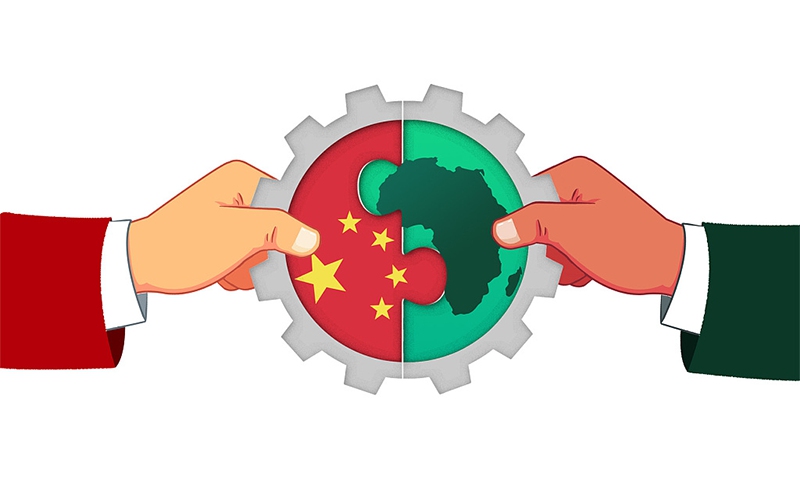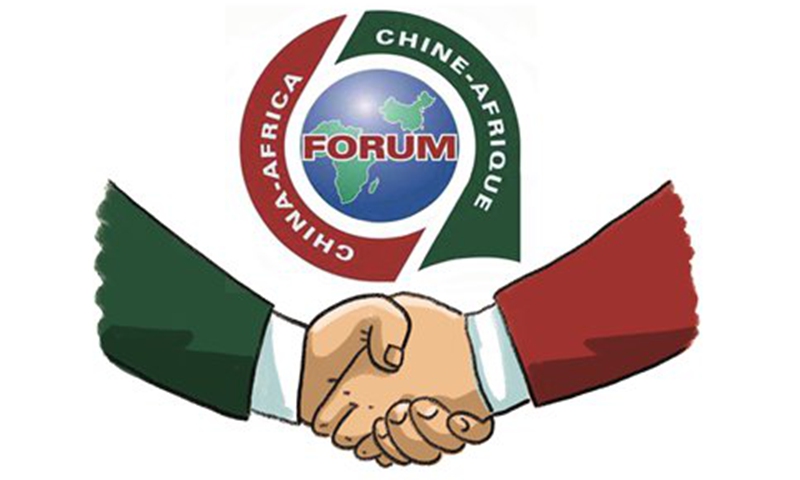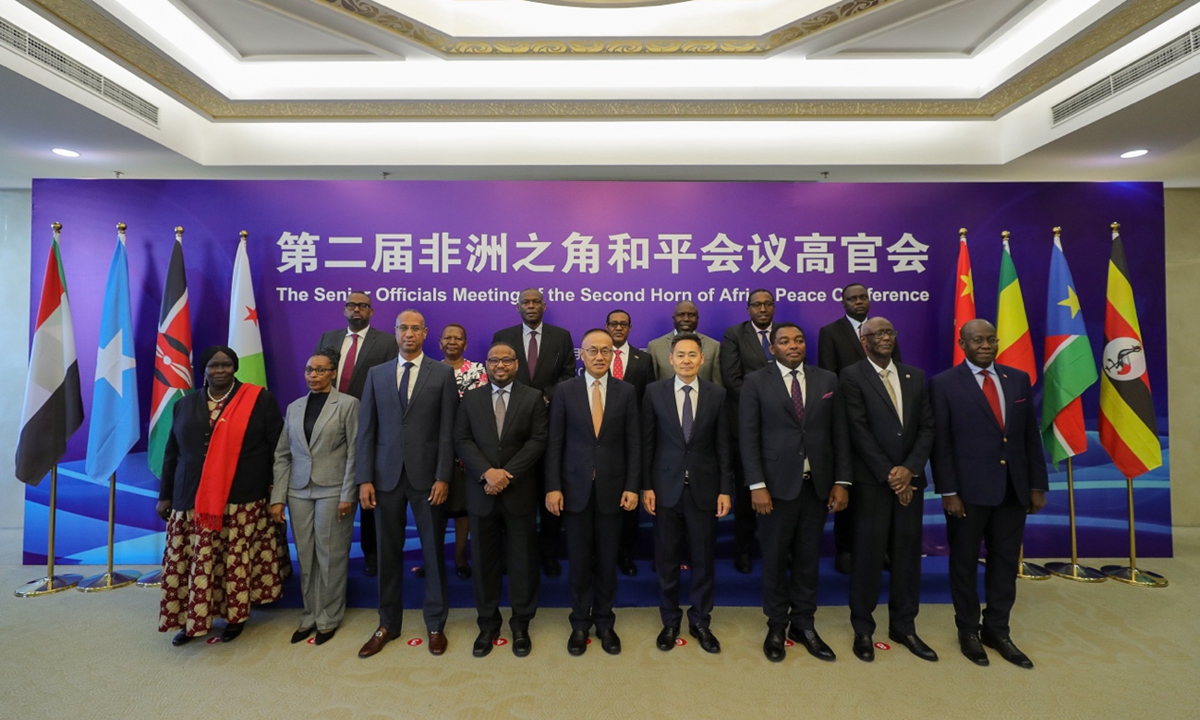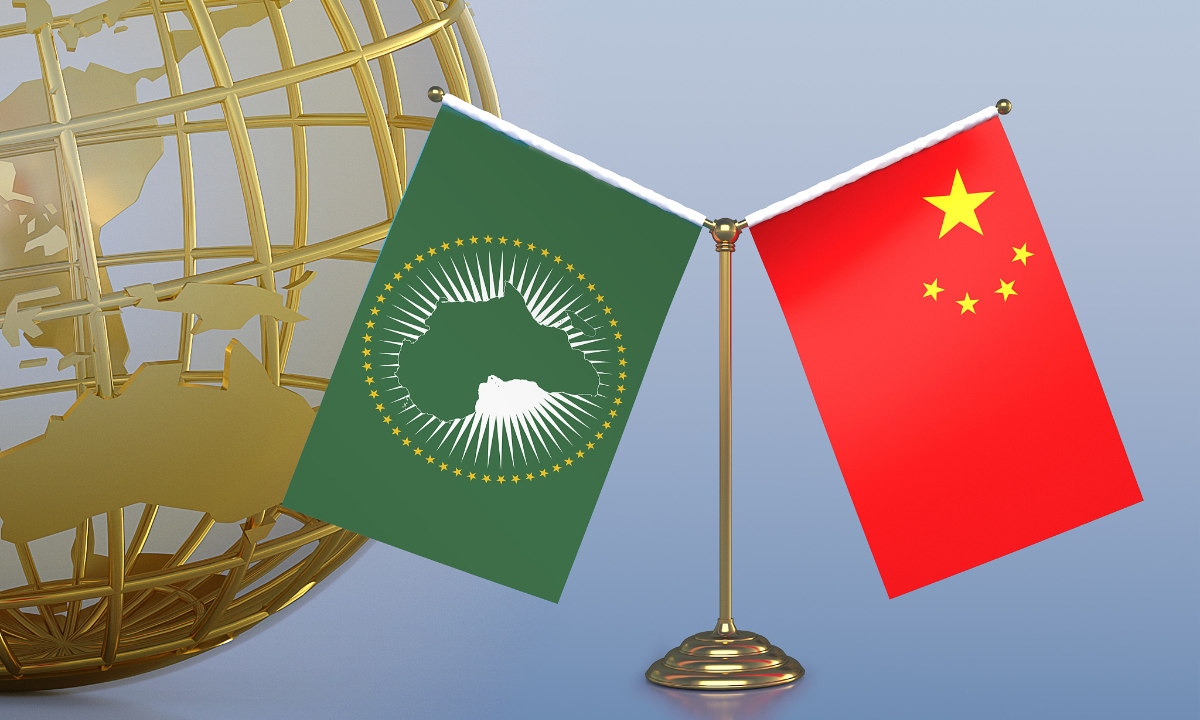BRI deeply integrated into African development; more pragmatic cooperation expected in FOCAC

China Africa Photo: VCG
The joint construction of the Belt and Road Initiative (BRI) by China and Africa has provided a high-level cooperation platform for Africa's development.From Uganda and Egypt to Senegal and Nigeria, infrastructure, industrial parks and economic zones built by Chinese companies have mushroomed and become a strong engine driving Africa's integration into the global industrial chain.
China and Africa will renew their friendship and discuss plans for further pragmatic cooperation during the upcoming Forum on China-Africa Cooperation (FOCAC) to be held in Beijing from September 4 to 6. Chinese President Xi Jinping will attend the opening ceremony of FOCAC and deliver a keynote speech on September 5.
The cooperation between China and Africa under the BRI framework emphasizes precise alignment with Africa's shared strategic framework - the African Union 2063 Agenda - one of whose priorities is the realization of industrialization in Africa.
In its issue of May 13, 2000, The Economist boldly described Africa as "the hopeless continent." In the very same year, FOCAC was established.
The narrative on Africa now has shifted to "a rise in the continent." When tracking momentum projects that have contributed to unlocking Africa's development, you can trace the progress back to China's flagship projects through BRI, Paul Frimpong, the executive director and senior research fellow of the Ghana-based Africa-China Centre for Policy and Advisory, told the Global Times.
As of 2023, a total of 52 African countries as well as the African Union have signed a memorandum of understanding with China to jointly build BRI cooperation.
Citizens from Zimbabwe feel that they are deriving real benefits from the partnership with China, Munetsi Madakufamba, executive director of the Zimbabwe-based Southern African Research and Documentation Centre, told the Global Times.
For instance, the integrated steel manufacturing plant set up in Zimbabwe's Midlands Province by Chinese firm Dinson Iron and Steel Company draws on upstream and downstream supply chains that go beyond Zimbabwe, benefiting its neighbors in areas such as employment generation, and also helps to meet the Southern African Development Community (SADC) region's infrastructure construction needs, said Madakufamba.
Madakufamba also emphasized the driving role of green development in energy cooperation within the BRI. Media reports said that investment in the energy sector accounts for about 40 percent of Chinese investment in BRI partner countries and regions.
"China brings its modern technology while taking into account potential negative impacts on the environment. The clean-energy project, like the power generation of the Kariba South Hydroelectric Power Station, meets the sustainable development aspirations of African countries," Madakufamba said.
African industrialization also requires the connection of facilities, which is where BRI is most visibly present in Africa.
"Most of the current tangible infrastructure, such as rails and ports, that you see in many countries, including my own country Ghana, has been built by China," Frimpong said. "It is all part of the BRI."
An early result of BRI, the Mombasa-Nairobi Standard Gauge Railway (SGR), is a flagship project.
Song Wei, a professor from the School of International Relations and Diplomacy at Beijing Foreign Studies University, said that "through the connection from the capital Nairobi to the port of Mombasa, Kenya will be further integrated into the global value chain. A lot of local workers have been absorbed to solve the local employment issue, and to promote the real improvement of local people's living standards."
In addition, a core focus on how China is actively promoting the realization of industrialization in Africa is the nurturing of talents required by the continent throughout this process, Song said.
For instance, we have established Luban Workshops in Africa to train the talents that African countries greatly require, Song noted.
"China has been at the forefront of aiding Africans in human resources development. This is crucial for transforming an African nation or regional development," Frimpong said.
At the same time, China supports Africa's development through providing more opportunities in trade, which experts consider the most crucial tool for unlocking progress in the continent.
Song listed examples such as the China International Import Expo (CIIE), which has offered complimentary standard booths to less-developed countries, while some Chinese e-commerce companies have also helped train online shopkeepers in Africa, boosting local cross-border e-commerce.
'Let's go together'
"Mutual understanding, not based on imposition" - This is the sentence that Frimpong, the scholar from Ghana, used to describe China-Africa cooperation.
"This is one of the core reasons why the Africa-China engagement is at this high level, which is very enviable to the rest of the world," he emphasized.
Echoing Frimpong, Rana Mohamed Abd El Aal Mazid, the head and associate professor of political science at Suez Canal University in Egypt, told the Global Times that the Chinese perspective is very different, with the keywords of "friends," "let's go together" and "Global South."
China insists on not interfering in any country's internal affairs and does not attach any conditions, a stance that is fundamentally different from that of the US or the West. When China cooperates with Africa, African countries are able to gain a level of respect and equality. This equal partnership has formed a model for how countries engage, Song concluded.




